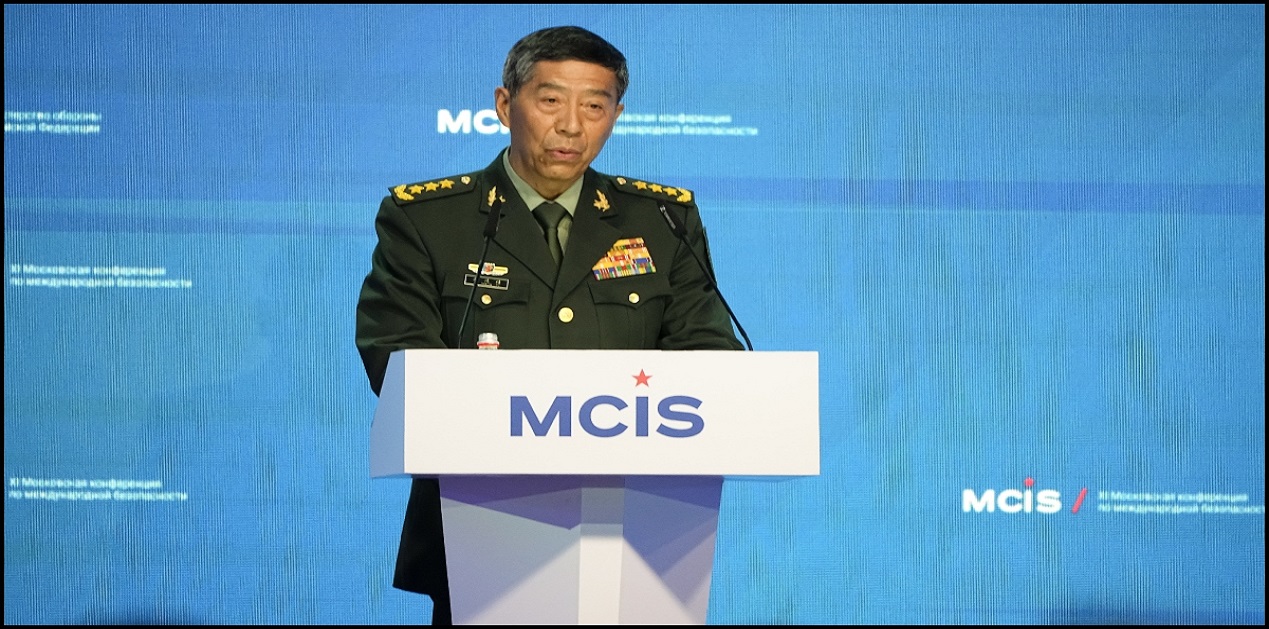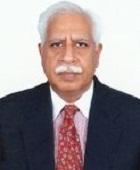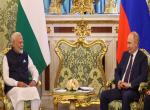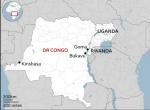The interest of governments and observers of China have got heightened with some unusual developments taking place in China particularly since the past few months. These have included the "removal" of high Chinese Communist Party (CCP) officials, purges of high officials of the People's Liberation Army (PLA) and changes in Chinese President Xi Jinping’s work pattern. Countries are also concerned at the implications of China's deteriorating economic situation.
The sudden disappearance from public view of Qin Gang, who occupied the high profile post of China's Foreign Minister, sparked numerous rumours including that he was under investigation. Two months later this July, the Standing Committee of the National People's Congress (NPC) -- China's version of a parliament -- formally announced his "removal" as Foreign Minister. Curiously, and though the NPC SC is empowered to divest him of the higher post of State Councilor, he has been allowed to retain that.
Soon thereafter, Chinese Defence Minister Li Shangfu, who was also appointed a State Councilor, disappeared from public view from August 29. His whereabouts are still not known, though rumours abound that he too is under investigation. Giving credence to these rumours, neither he nor Qin Gang was present at the Politburo 'study session' presided over by Chinese President Xi Jinping on September 27. The other three State Councilors were all present. Furthermore, Li Shangfu and his predecessor General Wei Fenghe, also rumoured to be under investigation, did not attend the 74th anniversary celebrations of the People’s Republic of China at the Great Hall of the People in Beijing attended by former and serving PLA officers. In case they are being investigated then an announcement could be expected around October this year.
That both Qin Gang and Li Shangfu 'disappeared' almost at the same time is intriguing. Both are very close associates of Xi Jinping who has been instrumental in their rise.
Qin Gang is a protégé of Chinese President Xi Jinping. Xi Jinping brought him in to China's Ministry of Foreign Affairs (MoFA) and then sent him as Ambassador to Washington ignoring other senior contenders for this prestigious appointment. Well before completion of his term, Qin Gang was recalled to Beijing and at the 20th Party Congress in October 2022; he was appointed Foreign Minister and State Councilor. He was also appointed a full member of the CCP Central Committee (CC) though he was not even an alternate member of the CC earlier.
Li Shangfu, who is a "military princeling" has close second generation family ties with Xi Jinping. Xi Jinping and Li Shangfu's father's served together in the Army and Li Shangfu's father was brought into the mainstream by Xi Jinping's father, Xi Zhongxun. Xi Jinping brought Li Shangfu into the CCP CC at the 19th Party Congress and retained him in the CC at the 20th Party Congress. He also promoted him as a member of the Central Military Commission (CMC) and appointed him Defence Minister and State Councilor in October 2022.
In case the two are confirmed to be under investigation it would convey a number of messages. Chinese cadres could interpret it as either a push back by some group or coalition of cadres against Xi Jinping's accumulation of power or, more likely, as Xi Jinping being unable, or unwilling, to protect his protégés. Rumours have also been circulating since late last week that Chinese Premier Li Qiang, another close associate of Xi Jinping, could be in trouble because he has a foreign “son-in-law”. Chinese social media said that the son-in-law, a British national named Forbes, and Li Qiang’s daughter had started an architecture company when she was 23 years old and got a major contract in the first year. It published photographs of his daughter and “son-in-law’s” house in the UK. These developments are likely to dent Xi Jinping’s image.
The sudden removal of General Li Yuchao as PLA Rocket Force (PLARF) Commander and Xu Zhongbo as PLARF Political Commissar, both Generals promoted by Xi Jinping, confirms that corruption is widespread in the PLA. More importantly it indicates that despite the successive year-long political education campaigns in the PLA and bringing the PLA within the purview of the CCP’s anti-corruption outfit, namely the Central Discipline Inspection Commission, Xi Jinping has not been able to eradicate corruption in the PLA. The appointments of PLA Navy (PLAN) General Wang Houbin as Commander of the PLARF and PLA Air Force (PLAAF) General Xu Xisheng as Political Commissar, additionally suggests an effort to break up existing groups of associates and friends. It indicates that instead of informing the authorities about cases of corruption, PLA officers band together and ‘protect’ each other. PLA Rocket Force officers normally earn their promotions and stay within the Rocket Force.
The PLARF was recently allocated a large budget for expansion and enlarging its inventory of missiles. Reports reinforced by satellite photos in late 2021 showed that China is building nearly 170 new silos for intercontinental ballistic missiles in a desert near the northwestern cities of Yumen, Hami and Ordos. There are reports that the PLARF has added 15 Brigades to its strength. PLARF officers would have had access to a lot of money. A notice issued by the military's anti-corruption organisation, the PLA Discipline Inspection Commission, in late July 2023, said it will be investigating irregularities in the tender bidding process for the period between 2017 and 2022. This implies that in addition to the PLARF Commander and Political Commissar, former senior PLARF officers including Generals Li Shangfu and Wei Fenghe would be involved as well. Li Shangfu was the PLARF Commander during that period. Citing two unnamed sources, Reuters recently reported that eight senior officials from the Chinese military's procurement unit are also under investigation.
This was strongly brought out in an important sternly-worded article published by the CCP’s People’s Daily on September 22. Titled 'Purify the social circle, life circle, and friend circle', the article was written by Chen Qinghua of the Reform and Establishment Office of the Central Military Commission. This People’s Daily article is significant in the backdrop of the purges and "removals" of PLA Officers in recent months and points to the effort to break up existing groups of associates and friends.
It recalled that "When talking about the need for leading cadres to strengthen self-discipline, President Xi once quoted the story in "Journey to the West" vividly: "Sun Wukong put Tang Monk there and drew a circle with a golden hoop, and the monsters could not get in." Draw a circle for yourself." It said this should be “a strong inspiration for leading cadres to purify their social circle, life circle and friend circle” adding that this is “The most effective way to stay away from dangers and temptations is to conduct "physical isolation". It asked cadres “Never overestimate your determination or superstition about your abilities. Don't participate in activities that you can avoid, and don't go to dinner appointments that you can avoid. … Party members and cadres do not live in a vacuum. Necessary interpersonal interactions are inevitable, but interactions must be principled and rule-based." It warned that “Especially for leading cadres, once the power in their hands is targeted by people with ulterior motives, problems such as abuse of power for personal gain and power-for-money transactions will easily occur” and drew their attention to the "Code of Conduct for Social Interactions of Military Leading Cadres" issued recently by the Political Work Department of the Central Military Commission and the Commission for Discipline Inspection. The Code emphasises “that military leading cadres should strengthen their party spirit, strengthen self-discipline, constantly purify their social circles, living circles, and friend circles, and consciously achieve social interaction, have principles, boundaries, and rules”. It said “This requires leading cadres at all levels to firmly guard the relationship between people, consciously maintain pure, healthy and civilized interactions, and build fresh and clean interpersonal relationships”.
Addressing leading cadres it said “Judging from the corruption cases investigated and dealt with in recent years, many "hunting" behaviors are cloaked in the guise of human relations, and under the banner of fellow villagers, classmates, comrades, etc., like "boiling a frog in warm water", unknowingly turning the "circle of friends" into a "circle of friends" "Encirclement" made the "small circle" weave into a "big trap", and "careless making of friends" was an important reason for individual leaders to surrender. As the saying goes, "The success or failure of a life depends on the virtuousness of your friends." The article added that “There is politics in communication, discipline in communication, principles in communication, and image in communication. Because of their special status, soldiers should interact more with positive people, whether internally or externally, in order to establish a good image as a soldier. Only by making friends with people who are dedicated to fighting can they better focus on their main responsibilities. Leading cadres at all levels should always tighten the strings of discipline and rules, work in a down-to-earth manner, interact with each other in a clear and refreshing manner, mind their own mouths and not eat what they shouldn't eat; mind their hands and take things they shouldn't. Don't take it; take care of your legs and don't go where you shouldn't go. We should resolutely abandon the utilitarian exchanges of "friendship based on profit", the pragmatic exchanges of "friendship based on power", and the vulgar exchanges of "friendship based on wealth", and beware of "talking" by relatives and friends, and "walking around" by classmates. "Move around" and "liaise" with neighbors near and far, and truly be politically savvy, contact wise, economically clean and decent people in life."
A couple of other features of Chinese President Xi Jinping’s third term at the helm are his absences from some international events. Xi Jinping skipped attending the ASEAN Summit held in Indonesia and a week later the G-20 Summit in New Delhi though it could have been advantageous to China. He would have met leaders of advanced countries at a time when China is facing economic pressures including of de-risking from countries and runs the risk of coming under increasing economic and political pressure. He also avoided attending the UNGA session, where he sent Vice President Han Zheng. Ealier Xi Jinping used to attend all these meetings. There is speculation whether he will attend the APEC Summit in the US where he would have the opportunity to personally meet US President Biden.
Finally, unlike in the past decade during Chinese President Xi Jinping’s previous terms, there is an apparent imbalance in the portfolios of the Politburo Standing Committee members. While in the past all, except to a degree Chinese Premier Li Keqiang, had a similar profile with Xi Jinping surpassing all others including his predecessors, this term is different. Number 5 ranked Politburo Standing Committee member 1955-born Cai Qi holds more important portfolios than his other colleagues except for Chinese Premier Li Qiang. As in charge of the CCP Central Secretariat and Director of the CCP CC General Office, Cai Qi is effectively Xi Jinping’s chief of staff. He accompanies Xi Jinping on all his travels and oversees security and other arrangements. He is also in charge of ideology and propaganda. Unlike his predecessors in this job, Cai Qi is also a Deputy Director of the CCP CC National Security Commission and a Deputy Director of the Central Comprehensively Deepening Reforms Commission, both chaired by Xi Jinping.
Chinese Premier Li Qiang another confidante of Xi Jinping was promoted as Premier at the 20th Party Congress. He is charge of the economy and State Council, which gives him authority over personnel appointments. Li Qiang has, however, not been able to make much headway in tackling the economy because of Xi Jinping’s stress on security.
Both Cai Qi and Li Qiang are in important positions and have been able to place some of their proteges in the central apparatus. They need to be discreet and subtle, however, because if they are perceived to be strengthening their positions their downfall could be sudden. At the same time, while the appointment of Cai Qi and Li Qiang in these important positions demonstrates Xi Jinping’s confidence in them it also sows the seeds of potential future factional infighting.
(The paper is the author’s individual scholastic articulation. The author certifies that the article/paper is original in content, unpublished and it has not been submitted for publication/web upload elsewhere, and that the facts and figures quoted are duly referenced, as needed, and are believed to be correct). (The paper does not necessarily represent the organisational stance... More >>
Image Source: https://resize.indiatvnews.com/en/resize/newbucket/1200_-/2023/09/li-shangfu-1694865122.jpg











Post new comment